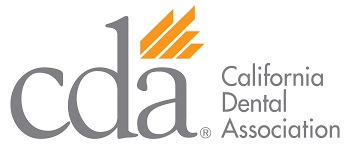General Dentistry and Periodontal Health: How Dental Health Relates to Overall Health

Dental health is a critical component of everyday health. It doesn’t simply just affect our mouths but can affect other parts of our body as well. At your general dentistry office, your dentist can see if you have any oral health issues but also if you have other signs of things like cancer, a sleeping disorder, eating disorders, or diabetes. Dental health issues can lead to more extensive bodily issues, so it is detrimental to your overall health to keep up with your appointments.
You will benefit from seeing your dentist routinely so they may detect and treat any oral issues you may have right away to prevent further, more serious issues from occurring later on. General dentistry is a vital part of your overall body health, and you should never take it for granted.
Listen to your dentist, take their advice home with you, and carry it over into your daily at-home oral routine.
What can oral health problems lead to?
If not taken care of properly, your teeth can develop diseases that may lead to other complications. For instance, gingivitis and periodontal disease both cause intense swelling, bleeding, redness, and inflammation of the gums. This can cause you immense pain. It can also lead to an infection that can enter your jaw and bones. Similarly, cavities and mouth sores will cause pain and might deter proper eating. Cracked teeth can make chewing certain textures difficult. While sensitive teeth may find they must avoid extreme temperatures or even chew on one side of their mouth.
Your oral health problems can get so severe that you may end up in the hospital suffering from a stroke, heart attack, or even worse. Taking care of your teeth and gums will help give you a lifetime of a healthy smile and peace of mind knowing you are doing everything possible to keep your entire body on the right path.
What about other health issues?
Many people are surprised to find that at their general dentistry office, they are trained to be aware of other potential health issues during a dental exam. Here is a brief breakdown of what your dentist make looks for:
- Oral cancer is something they will regularly look for, which can develop as a lump or patch.
- Osteoporosis affects the bones, which can lead to loss of teeth or brittle bones.
- If you suffer from sleep apnea or other sleeping disorders, you may grind your teeth at night.
- Diabetes patients have a higher risk of developing gum disease, which dentists can discover if your gums seem to be straying from your teeth if you have bad breath, inflammation/bleeding gums, or teeth that are not secure.
If your dentist suspects any of these problems, they will ask you follow-up questions such as if you have been diagnosed or seeking treatment for any of these issues.
You can always have medical conditions that are unrelated to your oral health, but those same issues can cause you to have dental problems. For example, medications for certain illnesses cause tooth decay and bad breath. This is why your dentist should always know what types of medications you are taking and what conditions you have been diagnosed with.
At your appointment
During your bi-annual or annual dental examination, your dentist will ensure that they look at any signs of potential disease or infection. While this is typical protocol for a general dentist, do not rely on them to inform you if you have diabetes or osteoporosis exclusively. The main job of your dentist is to work with you on your oral health, and any suspicions of other health problems should be directed at your primary care doctor.
During your examination, inform the dentist of anything you have noticed. For example, if your gums or teeth are sensitive, and if so, under what circumstances. There is no cause for alarm if you find that your gums bleed or are inflamed, as this may mean it is a targeted area and not affecting the whole mouth. Speak with the dentist about any concerns to address them immediately and prevent any complications.
Always be sure to ask your dentist any questions you may have during your routine examinations. They are there to help you in any way they can. Both you and your dentist want you to stay healthy, and a huge part of your overall health is your oral hygiene.
Request an appointment here: https://www.uplanddentalgroup.com or call Upland Dental Group And Implant Center at (909) 660-6080 for an appointment in our Upland office.
Check out what others are saying about our dental services on Yelp: General Dentist in Upland, CA.
Related Posts
Proper oral hygiene is an often-overlooked but important part of a person's dental health, as well as overall health. In general dentistry, routine dental exams are a crucial aspect of oral healthcare that maintains healthy teeth. However, there are many myths surrounding exams.The following are three of the most common myths about dental exams, as…
Your Upland family dentist plays an important role in your oral health because they help you prevent cavities and gum disease while providing you with tips on how to improve your oral health. Even if you already practice good oral hygiene, these tips will help improve your oral health.Practicing good oral hygiene means you have…
Many types of dental implants are available. There are also many ways to attach them to your jawbone and gums. Working with your dentist can determine the right implants. Here are the different types of dental implants that are right for your dental needs.These restorations have titanium rods that the dentist inserts into the jawbone.…
To manage the pain you will feel after a root canal treatment and to prevent infection, it is critical to follow proper aftercare. The treatment is standard, so it should not be a surprise to your dentist. Once you go home, you will need to follow some aftercare tips to keep your mouth healthy. Here…


